Evaluation of the Rothschild Fellowships Program
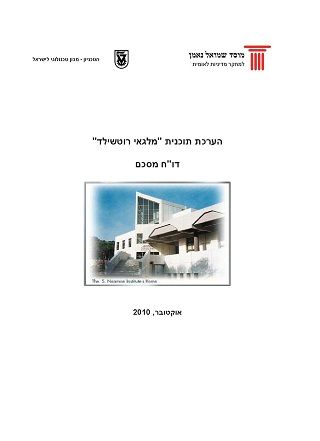
The Rothschild post-doctoral fellowships were established in 1979 with the aim of enabling Israeli PhDs to spend a post-doctoral period of study abroad. The program is considered to be one of the most prestigious fellowships available for Israeli scholars. The main goal of the research was to evaluate the impact of the program on the […]
Trust in the institutions and pride in Israel’s achievements in the first decade of 2000
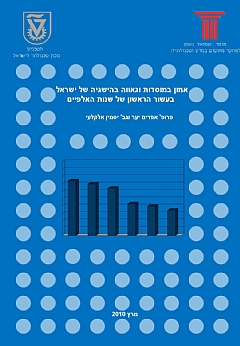
This report brings the results of three surveys of public opinion that were held in the years 2003, 2006, and 2009 on basis of statistical samples that represent the population of mature persons ( above 18 ) in Israel. The surveys are destined to examine the Israeli public opinion about two subjects: A). The degree […]
Choosing a Male Specialty:Women Surgeons
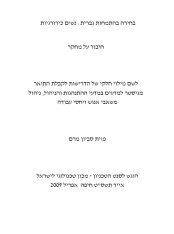
The revolution in society which occurred in the last decades due to social and organizational changes has a great impact on our life in general and on occupational changes related to women in particular. Slow changes started appearing in life styles, to which many medical students reacted, by changing their list of priorities in ranking […]
Human Resources for Science and Technology in Israel – Selected Topics (Part B)
The goal of this project, which is operating under the auspices of the Samuel Neaman Institute and the National Council for Civil Research & Development (MOLMOP) is to present data on the science and technology human resources in Israel. During 2007, a first report was submitted, including data base on the supply and demand for […]
The Neaman Document -A study on Israeli Public Diplomacy; A Joint Project of the Samuel Neaman Institute, Technion And the Ministry of Foreign Affairs, Israel.
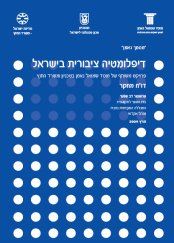
The decision to conduct a research project in order to present recommendations for Israel public diplomacy (PD) policy relies on the premise that even though there is continuous concern with the subject by government agencies and others in the field, there is from time to time a need to update contents and methods, target groups, […]
The Struggle for Palestinian Hearts and Minds: Violence and Public Opinion in the Second Intifada
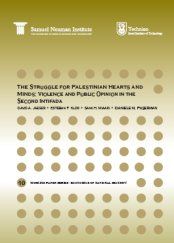
This paper examines how violence in the Second Intifada influences Palestinian public opinion. Using micro data from a series of opinion polls linked to data on fatalities, we find that Israeli violence against Palestinians leads them to support more radical factions and more radical attitudes towards the conflict. This effect is temporary, however, and vanishes […]
Human Resources for Science and Technology in Israel – Selected Topics (Part A)
The economic strength of any modern country is based on its ability to translate scientific knowledge and technological innovation to new products and services. This is especially relevant in the case of Israel which lacks natural resources. The basis for creating a scientific and technological knowledge base lies in the cultivation of human capital. The […]
The Israeli innovation system: An overview of national policy and cultural aspects
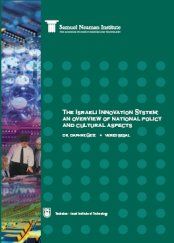
The goal of this overview, which was prepared by the Samuel Neaman Institute, is to examine the national policies and cultural aspects that support and lead Israeli innovation. Material for this document were gathered from various reports, documents, and articles written on the subject, so as to present a comprehensive and general picture of the […]
Terror and the Costs of Crime
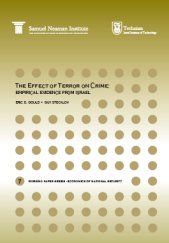
This paper argues that terrorism, beyond its immediate impact on innocent victims, also raises the costs of crime, and therefore, imposes a negative externality on potential criminals. Terrorism raises the costs of crime through two channels: (i) by increasing the presence and activity of the police force, and (ii) causing more people to stay at […]
Vouchers for New Immigrants as Tools for the Job Market
Over the past two years, the Ministry of Immigrant Absorption has operated a Vouchers Project, which seeks to increase adaptation of new immigrants to the Israeli job market. Within the project’s framework, eligible immigrants receive vouchers which can be redeemed towards professional training in a program of their choice from a licensed college, as well […]
